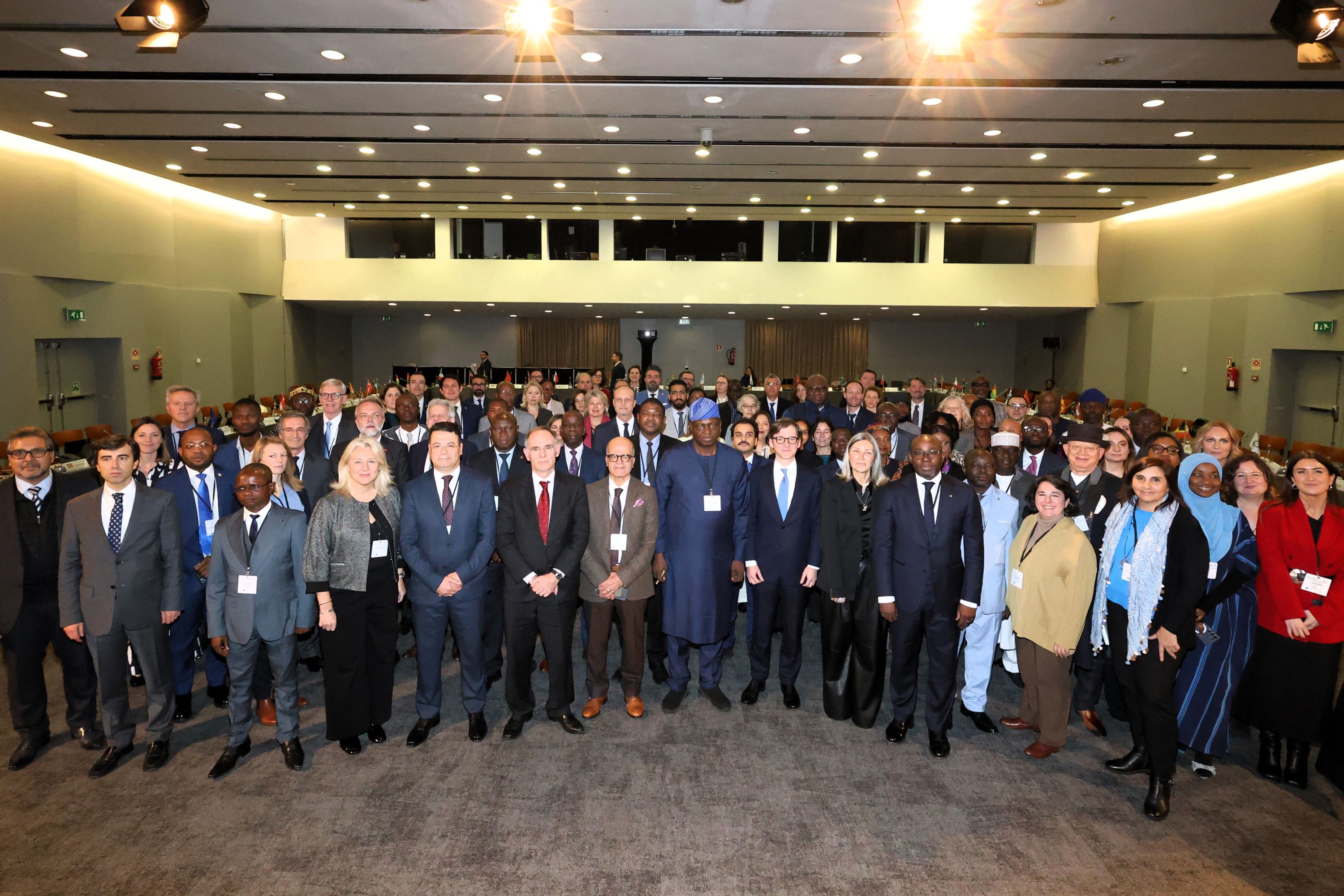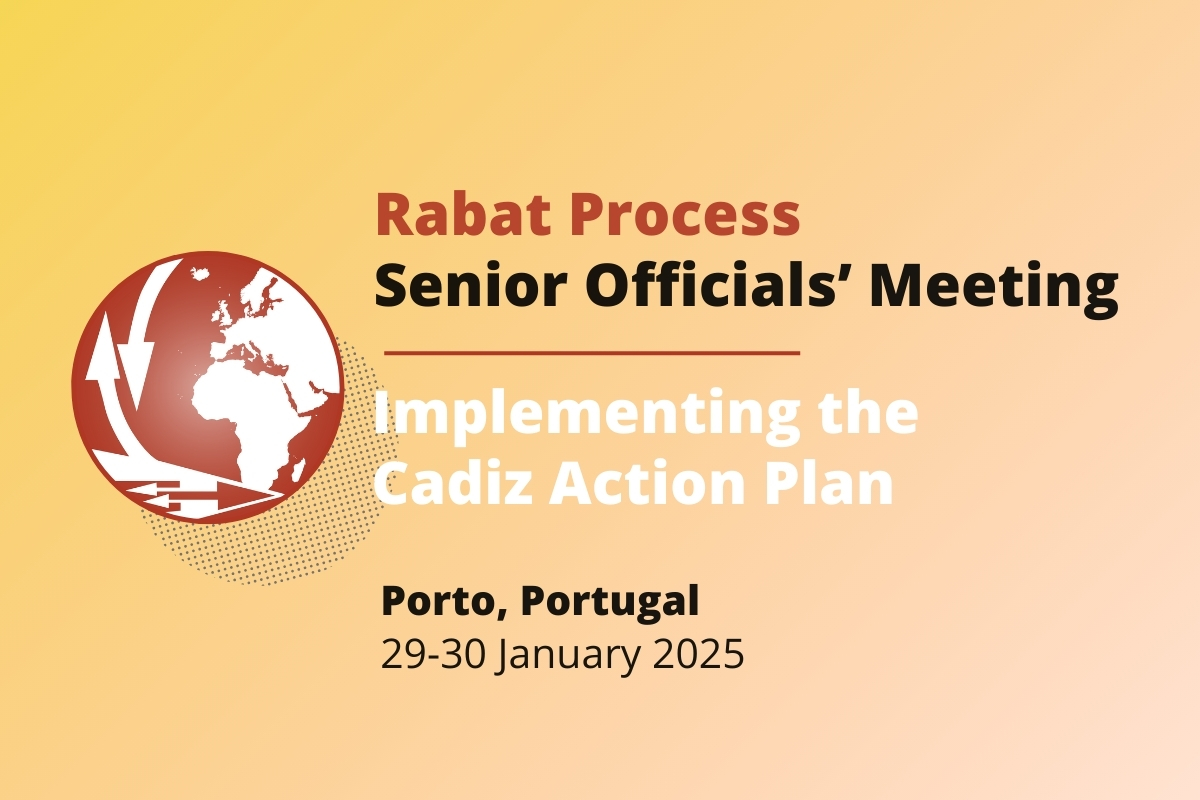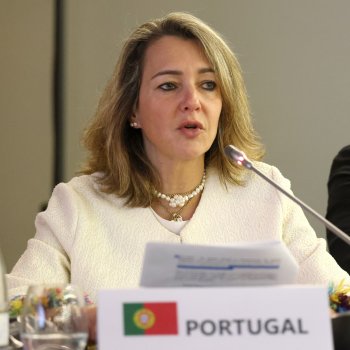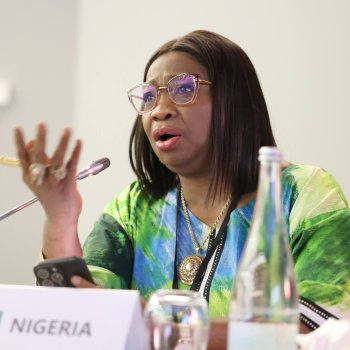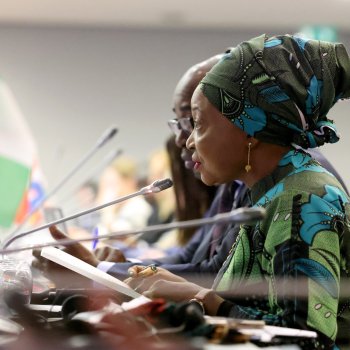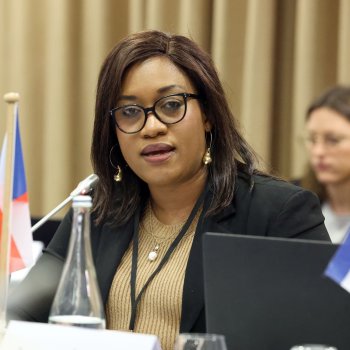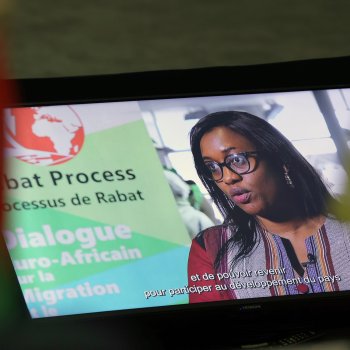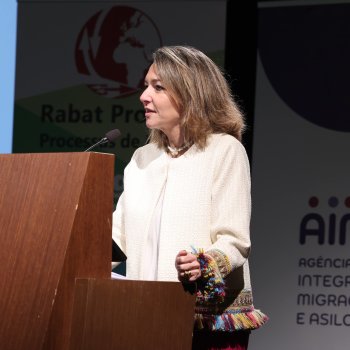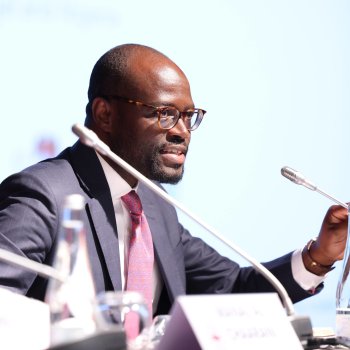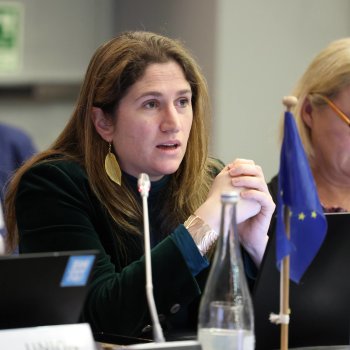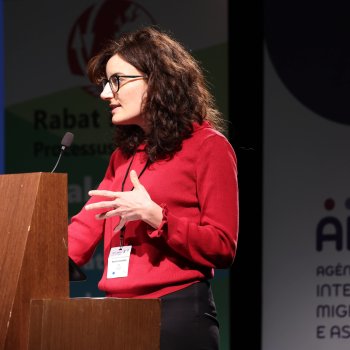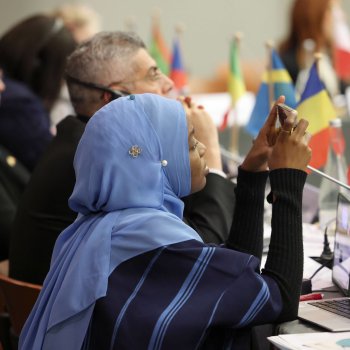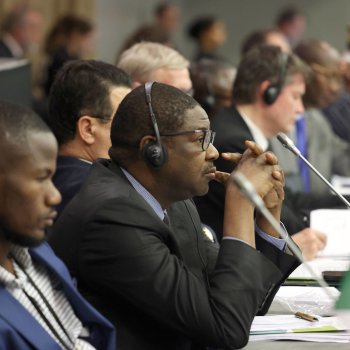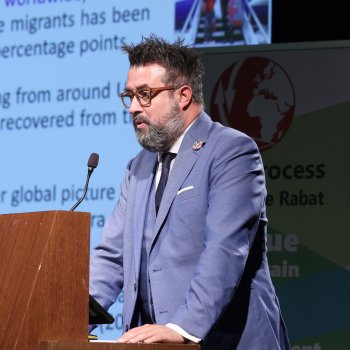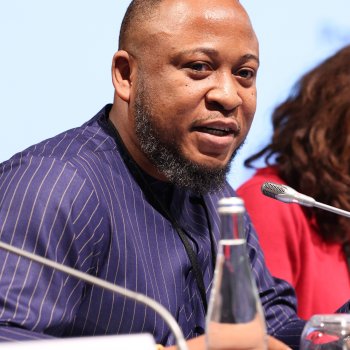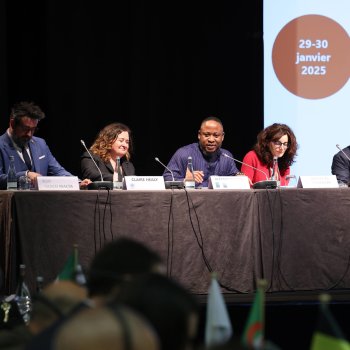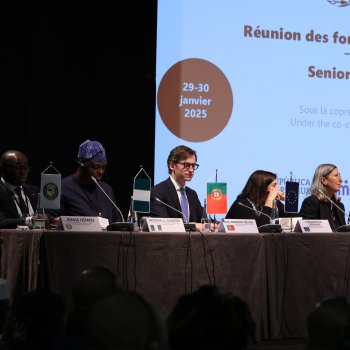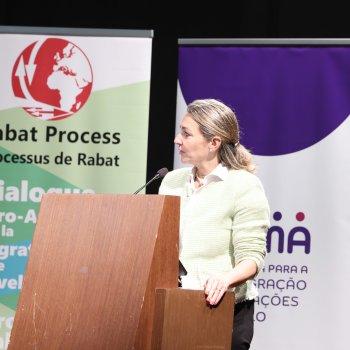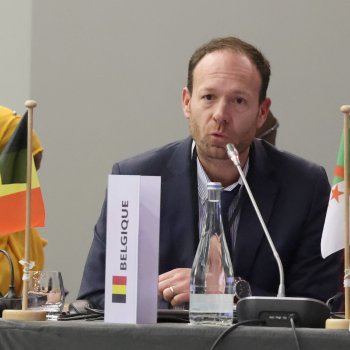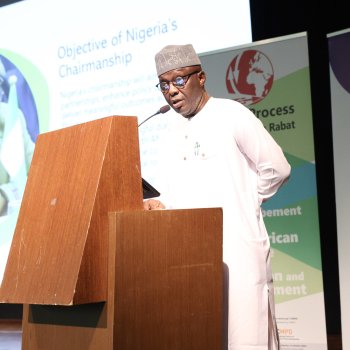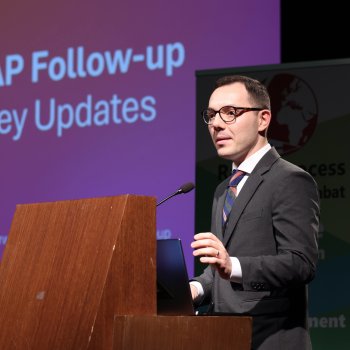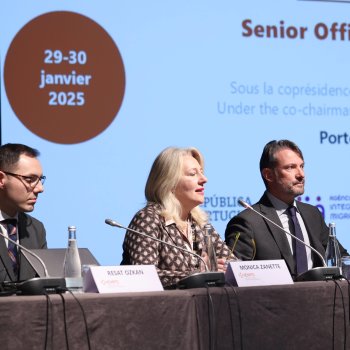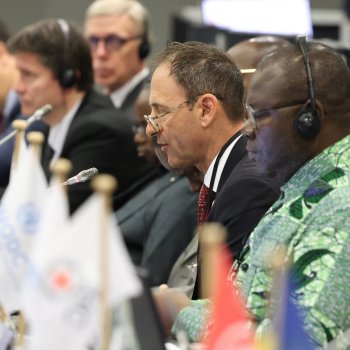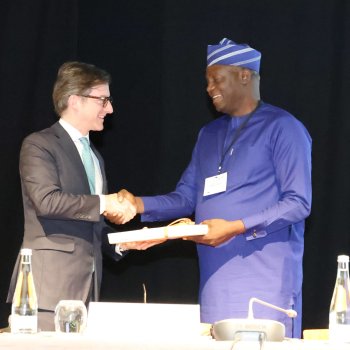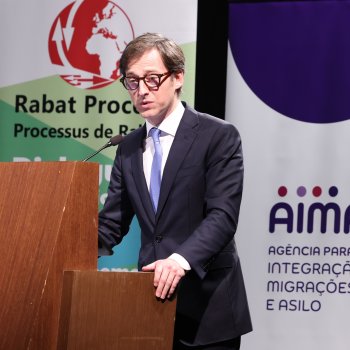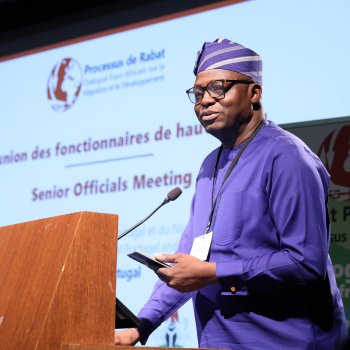On 29-30 January 2025, Portugal hosted a Senior Officials Meeting of the Rabat Process in Porto, co-chaired by Nigeria, the incoming Chair for 2025-2026. This high-level meeting provided an opportunity to take stock of the achievements under Portugal’s Chairmanship, assess the implementation of the Cadiz Action Plan over 2023 and 2024, and to present the programme of Nigeria for the year ahead. The meeting brought together 107 participants from 45 African and European partner countries, along with representatives from key regional and international organisations.
Reaffirming the role of Dialogues for global migration management
The Rabat Process region continues to face a series of lasting and emerging challenges. In this context, platforms such as the Rabat Process are essential to foster cooperation, enhance partnerships, and address the ongoing crises affecting migration flows. Participants notably heard from UNHCR, IOM, the ICRC and UNODC - the four international organisations with permanent observer status within the Dialogue) - who presented the latest trends and data. In West and Central Africa, the compounded effect of conflicts, poverty, insecurity and climate change have significant impact on mobility patterns and global displacement. The high-level officials all emphasised the importance of sustained and collaborative engagement between Europe and Africa, while committing to enforce existing frameworks such as the Global Compact on Migration, the EU Pact on Migration and Asylum, and the Cadiz Action Plan, amongst others.
The Cadiz Action Plan two years on: assessing implementation
The Senior Officials Meeting was an opportunity to look at the progress made in the implementation of the Cadiz Action Plan 2023-2027, the current strategic blueprint of the Rabat Process, as well as to renew the political commitment of all partners to existing objectives and priorities.
In this context, the Rabat Process Secretariat presented the findings of an online consultation conducted with the National Focal Points. The insights gathered are instrumental in shaping the Dialogue and refining activities to better align with the needs of partner countries.
Portugal’s Chairmanship: a year of innovation and diversification
With a specific focus on 11 actions across 3 thematic areas, 2024 was a rich year with several advances for the Dialogue. During the meeting, countries acknowledged the launch of the Network of Focal Points for Missing Migrants, as well as the organisation of a Joint High-Level Meeting with the Khartoum Process, as key milestones to foster greater collaboration and synergies between a diversity of actors. Similarly, the production of innovative visibility products such as the highlights video was praised for showcasing the dynamism and leadership role of the Portuguese chair throughout the year.
Chairmanship handover to Nigeria: a balanced programme for 2025
During the closing ceremony, Portugal officially handed over the Chairmanship of the Rabat Process to Nigeria, which will hold tenure for one year. During their time as chair, Nigeria has pledged to promote a humane and balanced approach towards migration governance, to champion regional integration and cooperation, and to drive the Dialogue forward in close collaboration with Rabat Process partners. Nigeria’s priorities for 2025 include building upon previous meetings, particularly regarding the role of youth and innovation; pursuing efforts to clarify the fate of missing migrants; and enhancing the reflection on migration data management for evidence-based and value-driven policies.
Areas of the Cadiz Action Plan
Area 1: Development benefits of migration and addressing the root causes of irregular migration and forced displacement
Area 2: Regular migration and mobility
Area 3: Protection and asylum
Area 4: Irregular migration, migrant smuggling and trafficking in human beings
Area 5: Return, readmission and reintegration
Photos
